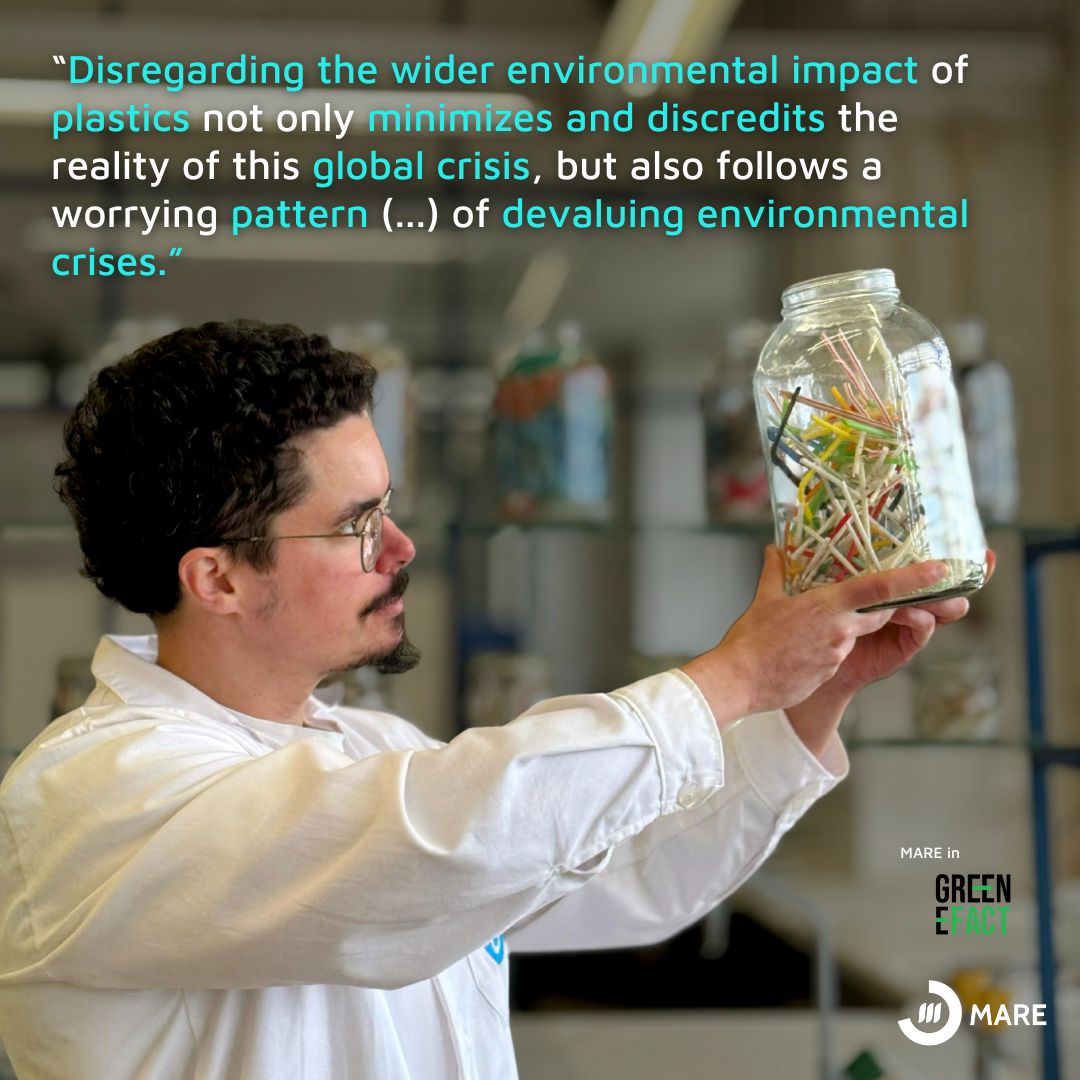Do plastic straws damage biodiversity? João Pequeno explaines
The ban on straws and other single-use plastic items has become one of the greatest achievements in the fight against ocean pollution. However, newly-elected President Donald Trump has downplayed the importance of this measure. After all, is the use of straws an environmental hazard or not? 
According to the American NGO Pacific Whale Foundation, straws are one of the 10 most common products found in beach clean-ups around the world, and they have very little chance of being recycled. In addition to this pollution, when exposed to decomposing factors such as the sun, straws can also turn into smaller debris, forming microplastics.
In Portugal, MARE researcher João Pequeno explained to Green-Efact how this devaluation by the American president “could lead to a generalization of similar rejections of other plastic products”. According to the researcher, “disregarding the wider environmental impact of plastics not only minimizes and discredits the reality of this global crisis, but follows a worrying pattern, already traced by this administration's approach, of devaluing environmental crises, taking into account previous decisions such as the US withdrawal from the Paris Agreement.”
According to João Pequeno, there are countless studies that demonstrate the threat that plastic poses to marine biodiversity. Ingesting this product, from which straws are made, can cause “physical damage and toxicological effects due to chemical additives such as bisphenol A and phthalates”.
The MARE researcher also warns that “the ongoing negotiations for the UN Plastics Treaty - already marked by the strong influence of the plastics, chemical and fossil fuel industries - risk being further weakened by the adoption of stances such as that of the Trump administration”.
By allowing the return of items such as plastic straws, Executive Order 14208 represents a step backwards from the environmental advances that have been made. Measures like this not only minimize the severity of plastic pollution - a complex problem with profound impacts on the environment, society and the economy - but could also set precedents for other decisions that make this environmental crisis even worse.
Read the full article HERE
Written by Patrícia Carvalho
